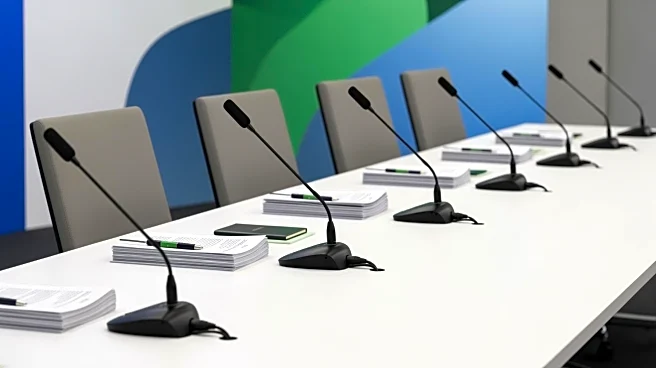What's Happening?
Maccabi Tel Aviv has decided to decline any tickets offered to their fans for the Europa League match against Aston Villa at Villa Park. This decision follows the UK government's ban on Maccabi fans attending the match due to safety concerns. The club
cited the wellbeing and safety of their fans as the primary reason for declining the tickets, referencing past incidents and a toxic atmosphere created by hate-filled falsehoods. The UK government expressed sadness over Maccabi's decision, emphasizing the importance of allowing fans to enjoy games without fear of violence or intimidation.
Why It's Important?
Maccabi Tel Aviv's decision to decline tickets reflects the broader challenges of ensuring fan safety in international sports events. It highlights the impact of political tensions on sports and the measures clubs must take to protect their supporters. The situation underscores the need for effective collaboration between governments, police, and sports organizations to address safety concerns while promoting inclusivity and combating extremism. The decision also raises questions about the role of sports in political discourse and the responsibilities of clubs in managing fan behavior.
What's Next?
The UK Football Policing Unit is in discussions with Israeli authorities to understand the role of Maccabi supporters in recent disturbances. The outcome of these discussions could influence future decisions on fan attendance at international matches. The UK government continues to explore ways to ensure safety at the match, with potential for policy changes based on the findings. The situation remains fluid, with ongoing debates about the balance between safety and inclusivity in sports.
Beyond the Headlines
The decision to decline tickets highlights the complex interplay between sports, politics, and societal issues. It reflects broader debates on racism, antisemitism, and the responsibilities of sports organizations in promoting inclusivity. The situation underscores the potential for sports events to become platforms for political expression and the challenges in managing such dynamics. It also raises questions about the role of sports in fostering dialogue and understanding across cultural and political divides.














